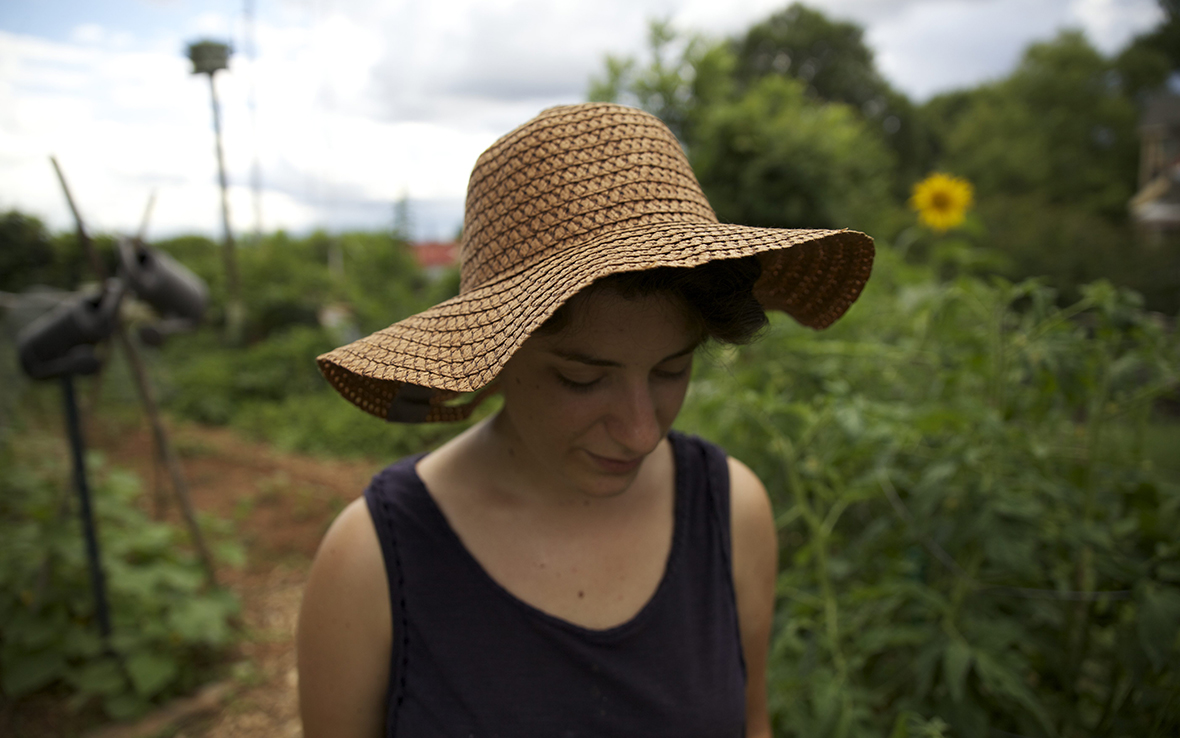Lauren describes her desire to create a five-year plan for her career as the product of being an 'overachiever'. Interestingly, her action is the same advice that we often find ourselves repeating when we speak to people, young or old, who are interested in starting a career in food and are not sure where to begin. Mostly, this idea has to do with taking the pressure off - there is already plenty of that to go around. Looking at what you might achieve over the course of a tangible, but not overwhelming, amount of time is a great way to get started.
The deadline to apply for the 2018-19 Fellowship is October 6, 2017 - learn more.
When did you know that you wanted to work in food?
I helped manage a student-run coffee business when I was in college. Our goal was to promote and serve sustainable coffee on campus, while having the experiential opportunity of runing a business. I saw the business grow, restructured management to employ more students and offer leadership rolls, and for the first time, we actually made money.
The thing was, I didn't really believe in sustainable coffee. I mean, it is pretty impossible in the United States to import any product for consumption and call it "sustainable" - it is not contributing to any kind of regeneration. But what I realized was: sustainability is community. We cultivated a community around our coffee business, even though we were in a strange location on campus and even though our machines froze in cold temperatures and even though there was cheaper coffee available elsewhere. It was through this community that we were able to share ideas, knowledges, and have a space to simply meet each other. Food makes these spaces. I crave these spaces.
How did you get your current good food job?
When I was an overachiever, I crafted a 5-year plan, and for my 5th year, I wanted to pursue an opportunity where I could refocus my energies on creating media and art. So during the third year of said plan, I started researching apprenticeships, fellowships, and grants that seemed relevant. The Fulbright-National Geographic Digital Storytelling Fellowship checked all the boxes. In that same year, I also met Dr. Vandana Shiva while I was teaching food literacy in schools, and that meeting really helped shape the direction of my project for the fellowship.
How did your previous work or life experience prepare you for a good food job?
I am absolutely not prepared at all. I have been working at schools, farms, restaurants and markets for most of my life. There are certain expectations, deadlines, responsibilities associated with these positions and if you don't meet them, people don't get fed. Storytelling, for me, doesn't always carry that sense of immediacy, but it should. It is a different kind of nourishment. One that takes time to brew and marinate. Working with soil and students, I definitely learned quite a bit about patience - for others, for myself, for things and sentiments to simply grow. So there's that.
What was the greatest obstacle you had to overcome in pursuing your Good Food Job dream?
I was required to get a medical clearance in applying for this fellowship. The prospect terrified me. I have chronic depression, and at the time of applying, had recently weened myself off pharmaceutical reliance (without "professional guidance"). I imagined myself in the clinic breaking down in tears, and the doctor declaring me unfit. But they checked the clearance box and there I go. Not having much of a regular routine or a serious support network nearby is excruciating for me while living in India. When it comes to persevering, I don't really know if I've figured that one out fully. But does a bee just stop collecting pollen?
Name one positive thing that a former employer taught you that you continue to appreciate?
I don't really know where to start when it comes to all the things I learned from and admire about one of my past supervisors, Ari. The woman is a powerhouse and laughs loudly. She connects so strongly to her values in and out of the workplace, allowing her moral fabric to dress all aspects of her life. Ari does not let consumer capitalism consume her, which is so essential to learn to do for anyone who believes and works in food justice or really any justice movement.
What can you identify as the greatest opportunities in food right now?
Putting labor back into food. Job creation is beyond essential. Many granting organizations are starting to allocate funds towards labor instead of just material infrastructure.
Rural conservation and revitalization. While building urban food systems is critical, we cannot dismiss and ignore the essentialism of rural systems. Rolling pastures and lush forests are not romantic, they are crucial for large-scale ecosystem health regarding water and air filtration and carbon sequestration. We need just as many land and good food stewards in rural spaces as we do in urban areas.
Harnessing passions for food into passion for the soil. Amid the rising chaos of a changing climate (and political atmosphere) turning our hands to the soil is vital for the health of humanity. With our hands in the soil, we can really listen to what she needs, give back to her and truly experience gratitude.
If you could be compensated for your work with something other than money, what would it be?
Skill and language tutoring, massages, dumplings.









